BORN WITHOUT A VAGINA – MRKH SYNDROME
Mayer-Rokitansky-Küster-Hauser (MRKH) syndrome is a congenital condition that affects 1/4500 women and is associated with a patient born without a vagina, born without a womb, and born without a uterus or a very short vaginal canal. The technical term for this condition is Mullerian agenesis which means the Mullerian ducts did not develop, and this leaves the patient with an absent vagina or missing vagina as well as a missing uterus and cervix.
Women with MRKH are often described as having a closed vagina or absent vagina, which can make sexual intercourse and menstruation difficult or impossible. This specific condition, vaginal agenesis, is a condition in which the vagina does not develop fully or is absent. Vaginal agenesis will leave the patient unable to engage in vaginal intercourse.
However, there are treatment options available for women with this condition. One such option is vaginal canal creation which sometimes can be accomplished through vaginal dilation.
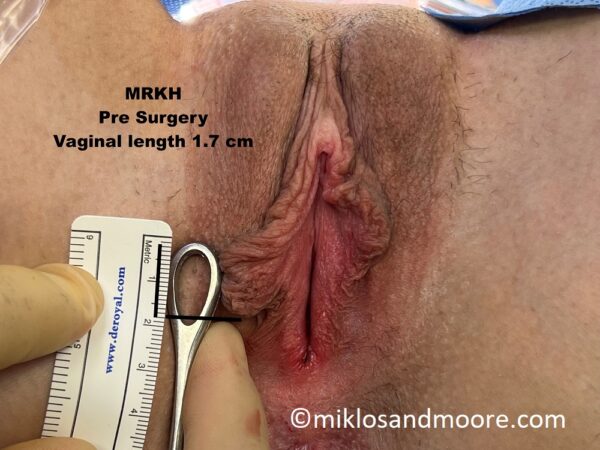
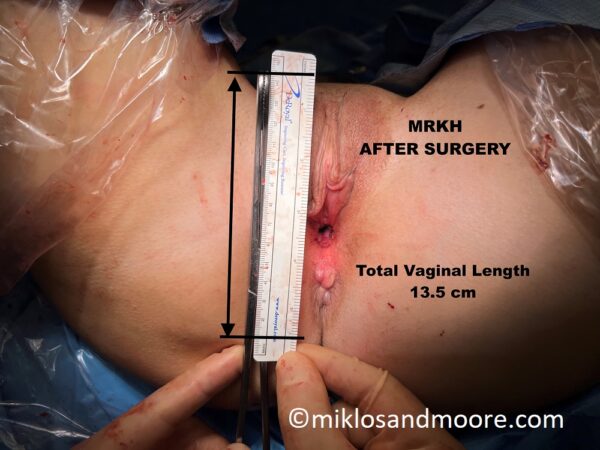
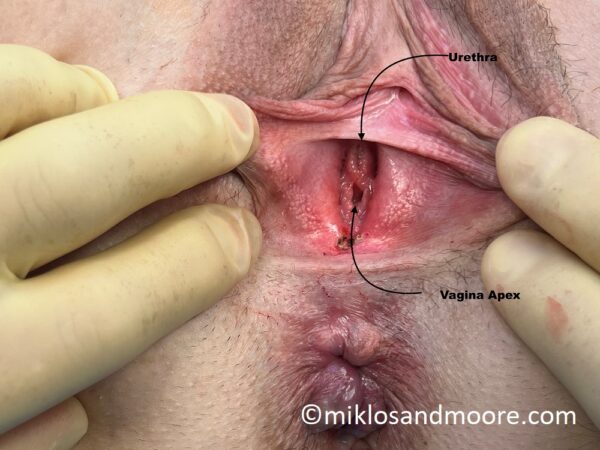
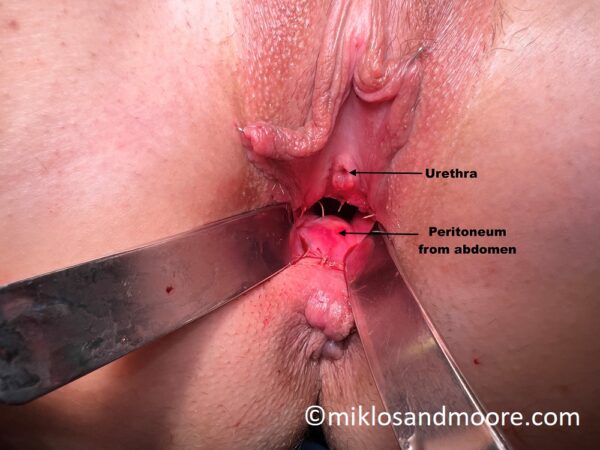
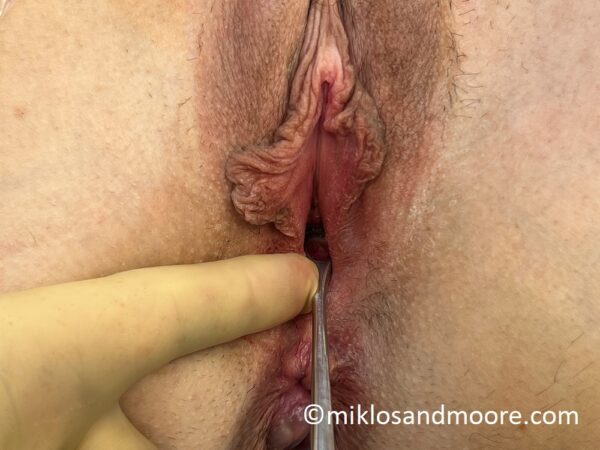
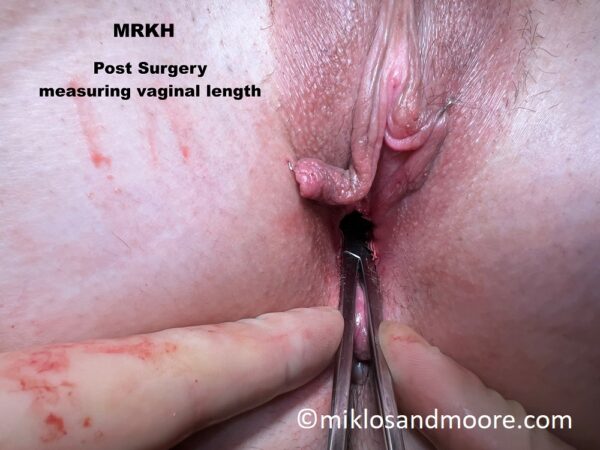
There is also the surgical option of creating or lengthening the vaginal canal. This creation of a vaginal canal is known as a neovagina. The surgery typically involves using skin grafts, colon, muscles, peritoneum, or other tissue. Drs. Miklos and Moore are World Renowned Neovagina surgeons.
In addition to vaginal canal creation, women with MRKH may also benefit from psychological counseling and support to help manage the emotional and psychological challenges associated with this condition. Living with MRKH can be challenging, but with proper treatment and support, women with this condition can lead healthy, fulfilling lives. It is important for individuals with MRKH to seek guidance and support from healthcare providers, other patients with MRKH as well as family and friends to help manage the physical and emotional challenges associated with this condition.
In conclusion, MRKH is a congenital condition that can result in the absence or underdevelopment of the vagina. This can lead to a variety of reproductive health issues, but there are treatment options available to help improve quality of life. It is important for individuals with MRKH to seek support and guidance from healthcare providers and loved ones.

